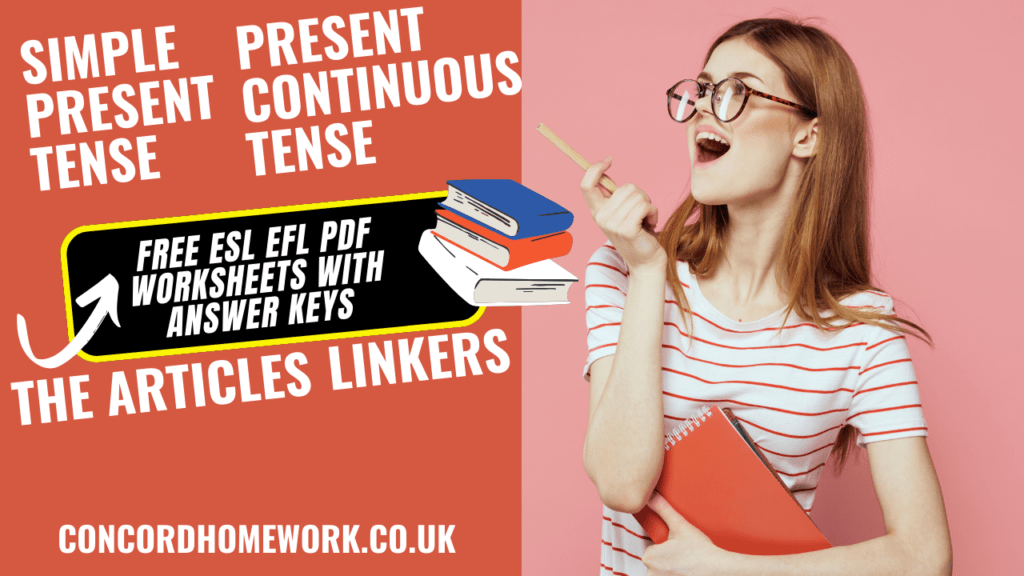Read the letter. Choose the best answer (A, B or C). (12×1=12 pts.)
This worksheet is a multiple-choice letter to practice the simple present tense, the present continuous tense, the articles, and linkers. Students read and answer the questions. The paper has an answer key.
1. Present Tense
Explanation: The present tense is used to describe actions happening now or habitual actions. It’s formed differently depending on the subject, but generally, we use the base form of the verb.
Example Table:
| Subject | Present Tense Verb | Example Sentence |
|---|---|---|
| I | play | “I play soccer.” |
| You | play | “You play the piano.” |
| He/She/It | plays | “He plays video games.” |
| We | play | “We play basketball.” |
| You | play | “You play tennis.” |
| They | play | “They play guitar.” |
2. Present Continuous Tense
Explanation: The present continuous tense describes actions happening now or around the present moment. It’s formed with the present tense of “to be” + the base form of the verb + “-ing”.
Example Table:
| Subject | Present Continuous Verb | Example Sentence |
|---|---|---|
| I | am playing | “I am playing soccer.” |
| You | are playing | “You are playing the piano.” |
| He/She/It | is playing | “He is playing video games.” |
| We | are playing | “We are playing basketball.” |
| You | are playing | “You are playing tennis.” |
| They | are playing | “They are playing guitar.” |
3. The Articles
Explanation: Articles (a, an, the) are words used before nouns to give more information. “A” and “an” are used for non-specific nouns, while “the” is used for specific nouns.
Example Table:
| Article | Use | Example Sentence |
|---|---|---|
| A | Used before consonants | “I have a cat.” |
| An | Used before vowels | “She ate an apple.” |
| The | Used before specific or known nouns | “The cat is on the table.” |
4. Linkers
Explanation: Linkers (and, but, or) are words used to connect ideas or clauses in a sentence. “And” adds information, “but” contrasts, and “or” presents alternatives.
Example Table:
| Linker | Use | Example Sentence |
|---|---|---|
| And | Adds information | “I like coffee and tea.” |
| But | Contrasts | “I want to go, but I can’t.” |
| Or | Presents alternatives | “Do you want pizza or pasta?” |

